Mark Anthony Neal's Blog, page 1022
February 22, 2012
"The African American Man in the Age of Obama" | Panel Discussion with Byron Hurt and Mark Anthony Neal at Hue-Man Books | Feb 23rd
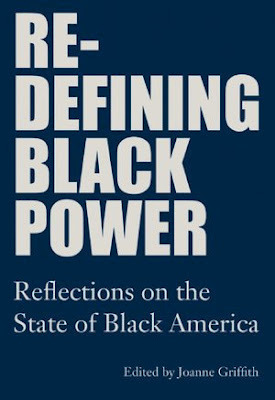 Thursday, February 23rd, 6:00 p.m.New York, NY: Hue-Man Bookstore Hue-Man Bookstore welcomes editor Joanne Griffith of the new book
Redefining Black Power: Reflections on the State of Black America
, and guests discussing "The African American Man in the Age of Obama."
Thursday, February 23rd, 6:00 p.m.New York, NY: Hue-Man Bookstore Hue-Man Bookstore welcomes editor Joanne Griffith of the new book
Redefining Black Power: Reflections on the State of Black America
, and guests discussing "The African American Man in the Age of Obama." Guests include Byron Hurt, filmmaker and director of Soul Food Junkies and Hip-Hop: Beyond Beats and Rhymes and Mark Anthony Neal, professor of African & African-American Studies at Duke University.
Hue-Man Bookstore and Café is located at 2319 Frederick Douglass Blvd., New York, NY 10027. For more information, please call 212-665-7400.
Published on February 22, 2012 05:39
February 21, 2012
A Response to "Notes on a Dying Culture"
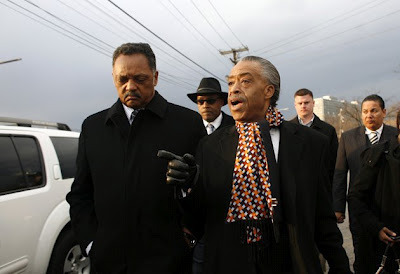
AResponse to "Notes on a Dying Culture" byJames Ford III | special NewBlackMan
WhitneyHouston's unexpected passing shocked me. I mourn for her and her loved ones whofeel her recent passing more profoundly than I ever will. I thought Bob Davis'srecent post would help me consider the impact of this loss. Sadly, his postrepeats the same Civil Rights vs Hip-Hop generation storyline. As a member ofthe generation he criticizes, I see his post as an invitation for furtherdiscussion.
Davissays the culture of the American Civil Rights Movement was "rejected…by its ownchildren" and two camps sprung up: one upholds the Civil Rights Movement'svalues and another doesn't. The latter group may erase black culture altogether.This decline storyline sabotages communal self-reflection, which is only effective when every generation is accountable for itsstrengths and weaknesses. I learned this from listening to hip-hop, in therawness of the Rza's beats, the low-end of 808s, Big Crit's bluesy productionand lyricism or Kanye's My Beautiful DarkTwisted Fantasy. Sometimes, rawness refers to uniqueness; it's not wrong,just different. At other times, rawness points directly to what is detrimentaland must be overcome. How does this relate to Davis's post? Davis doesn't wantto deal with all that is raw withinthe Civil Rights Movement and those who witnessed it. He scapegoats hip-hop toavoid facing this issue.
Davisdoesn't consider that some in the older generation have betrayed—or, at least,are highly inconsiderate of—the younger. Was Jesse Jackson an "elder statesmen"fatigued from guiding rebellious youth when he said he'd castrate PresidentObama? Was Ice Cube betraying the values of the Civil Rights Movement when he,a rapper, said Jackson's words were deplorable, considering the history oflynching in the US? My point is that, in Davis's account, there's no room forJesse Jackson to make such a terrible, selfish decision or for Ice Cube to be appropriatelycritical of it. He makes criticism a one-way street, when it should always goboth ways.
Butthere's more. Was Kanye betraying Civil Rights Movement values when he publiclycritiqued racism and Hurricane Katrina? Or when David Banner volunteered alongthe Gulf Coast? Was Mos Def betraying the tradition of Civil Rights Movementpublic protest when he was arrested outside the Video Music Awards for his impromptuperformance of "Katrina Clap," his song critiquing the Bush Administration? Onanother note, what about Common's recent performance in the White House or LupeFiasco's critiques of Obama in "Words I Never Said"? On yet another note, there'sPharoahe Monch's album W.A.R. (We AreRenegades), an epic album placing black culture amongst the anti-warmovements. I mean, Monch has a song called "Let My People Go" on the album.What more can he do to draw on Civil Rights culture? We can't understand the continuitiesand discontinuities between these eras with Davis's antagonistic perspective.More importantly, why don't these examples of hip-hop and politics show up onhis radar?
Perhapshe misses them because they don't fit his image of black "culture on display." Davissays America first saw it with Aretha Franklin's performance at King's funeral.Davis sees glimpses of it in R Kelly's and Alicia Keyes's "killer performances"at Whitney Houston's funeral. I wholeheartedly oppose the idea that R Kelly, ofall people, can reinstitute any morality. Kelly counts on people conflating thebeauty of his performance with moral virtue so he can get away with abuse. It'shard for me not to ignore the misogyny that links Jesse Jackson to R Kelly,Davis's potential "elder statesmen" to come. I wonder, can spectacle truly makeup for everything? Is the Civil Rights Movement all spectacle? Connect hisfocus on Kelly's performance to his emphasis on witnesses of the Civil Rights Movement and to televised events, andit seems that spectacle is what counts most in Davis's post. It's not adifference in cultural values. It's a difference in spectacles…King's orHouston's funerals vs XXL magazine.
Butmaybe that's it. The best (or even just decent) hip-hop interrogates anddisplays the shortcomings of seeing the Civil Rights Movement as spectacle. Hip-hopdiscusses King's activism, speeches, relationship to Malcolm, and assassination—the latter being theelement that no spectacle can or should be able to supplant. Hip-hop alsofocuses intently on the complexities of the drug abuse that troubled JimiHendrix, Michael Jackson, Richard Pryor, Gil Scott Heron and, yes, WhitneyHouston. Noting this does not condemn these brilliant artists. It condemns a worldthat pushed them to despair and profited from their momentary escapes from pain.But it also means that in the 80s and 90s, when Davis blames hip-hop forrejecting the Civil Rights Movement, the hip-hop generation could see the painand frustration of their parents and other community members who witnessed theCivil Rights Movement. Why wouldn't this encourage the younger to seekalternatives to what didn't work out in the previous generation? Indeed, hip-hopculture inherited some of its deepest issues from its immediate predecessors,who witnessed the Civil Rights Movement. But few will admit this because itshatters the image of the Civil Rights Movement that has replaced thecomplexity of what actually happened, good and bad.
WhitneyHouston did amazing things. Her angelic voice literally unified a nation withthe 1991 Superbowl. In her recent interviews she gave all the right answers aboutovercoming drug abuse. She knew the exact scriptures to quote when Oprah askedif she finally believed in herself. Millions of fans loved this. But none of ussaw she was still doubting herself, still hurting, still feeling anxious aboutthe future. Admitting this should not take away one iota from her artistry,because these are troubles we all face to some degree. But it should challengeus to consider the relationship between spectacle and substance, which is notalways easily understood. Hip-hop is just one of the artforms in black culture thatparticipates in and questions the spectacles in American popular culture. I'dlike to think that if she answered interviewers differently and acknowledged shewas still struggling, that we would have listened. Then again, I fear that we,whatever our generation, have been so caught up in the spectacle that we call "WhitneyHouston" that we might have missed her calls for help. This, and not hip-hop,is the sign of a dying culture.
***
James Ford is Assistant Professor of African AmericanLiterature at Occidental College in Los Angeles, CA. He is currently working ontwo book projects. The first book, Thinkingthrough Crisis: Depression-Era Black Literature, History, and Politicsexplores the insights that Black Radical writers from the first GreatDepression can teach about the current depression. The second book, Hip-Hop's Late Style: Liner Notes to AnAesthetic Theory, uses aesthetic philosophy to consider what post-GoldenEra hip-hop can teach us about living after America's Golden Era has ended.
Published on February 21, 2012 19:12
What's Going On?! Chris Brown, XXL, Contraception & Our Media | Know This! with Ariana
Published on February 21, 2012 18:44
Marc Lamont Hill on Jeremy Lin [video]
Marc Lamont Hill talks with CNN's Kyra Phillips about race relations and Jeremy Lin's success with the New York Knicks.
Published on February 21, 2012 18:35
February 20, 2012
And the Beat Goes On: Chris Brown, Too $hort, and the Disposable Conscience of Consumer Society
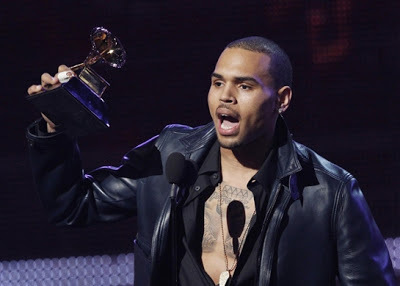 Andthe Beat Goes On:
ChrisBrown, Too $hort, and the Disposable Conscience of Consumer Society
by Lisa Guerrero | special to
NewBlackMan
Andthe Beat Goes On:
ChrisBrown, Too $hort, and the Disposable Conscience of Consumer Society
by Lisa Guerrero | special to
NewBlackMan
Last week while still reelingfrom the controversy put into motion by Too $hort's avuncular primer for youngblack boys on how to violate young black girls, people momentarily paused toconsider, and by "consider," I mean "rush to judgment," on Rihanna's decisionto collaborate with Chris Brown, her former abuser, on a remix of her song"Birthday Cake."
As one of myfriends on Facebook put it: "Rihanna needs to sit down and have a talk with Tina Turner." I can't say that I necessarilydisagree. The idea that a womanwould choose to invite her abuser back again to play a role in her life afterhaving broken free from his abuse is seemingly unfathomable to many people, menand women alike. What seemsungenerous in many of the criticisms of Rihanna circulating around thisdecision is that she isn't the first woman to make such a choice, and sadly,won't be the last. The cycle ofcodependency isn't one that is neatly broken, not even by the act of thedissolution of the relationship, which is "getting away" only in terms ofphysical proximity.
I can say to myself that I would never make such an obviouslysilly choice, but then, it's only "obviously silly" to me because I'm not inthat situation. However, what I doknow of Rihanna's situation, and why I feel that her decision is more complicatedthan people assume that it is, is this: much of the rest of the world seems tohave forgiven Chris Brown his trespasses, if they ever held him accountable inthe first place. So why is it thesole responsibility of Rihanna to withhold her forgiveness and force hisaccountability? Why should she beanymore forceful than a legal system that apparently felt that his domesticviolence merited no jail time? Ora fan base that apparently feels his talent far outweighs a little thing likebeating his girlfriend?
Yes, sheis his victim. Yet she is no lesshis victim than she is the victim of a society who so cavalierly and quitesystematically ignores, dismisses, and erases the violence enacted by the day,the hour, the minute against black girls and women. Chris Brown violated her. But she has since been continually violated ideologicallyand discursively by an excessively self-centered consumer public who has neverdemonstrated a sustained outrage against Chris Brown long enough to stop buyinghis albums, but has enough outrage to go around for Rihanna that she would everchoose to collaborate with him.
This latest flap over Rihanna andChris Brown comes on the heels of the furious flurry of ever more outrageousmanifestations of a problematic performative black masculinity that anchorsitself in the unapologetic denigration of, and dominance over women generally,and black women in particular. Letme say upfront that this critique is not a new one. The ongoing critical narrative around the misogyny andhomophobia of, for example, the singular arena of hip hop is, on its own, amedia and scholarly cottage industry, and not without good reason. But my interest here is not necessarilyto rehash this well-trodden and well-deserved critique of commodifiable blackmasculinity. My interest is inthinking critically about the relationship between the discursive moves withinmedia culture that work to serve consumerist desires while ideologically andmaterially sacrificing the safety and subjectivity of black women.
Daysbefore Chris Brown was in the news for collaborating with the woman he onceleft bloody and bruised in a car while he worked out the way to "spin" domesticviolence with his PR manager, he was in the news for his surprising andungracious win at the Grammys, his enfant terrible behavior in its aftermath,and the sad and ignorant Twitter parade of the predominantly white female fanswho said that Chris Brown "couldbeat [them] anytime."
Then, with barely enough time toassemble a coherent critique of Brown, Too $hort, aka Todd Shaw, and XXL Magazine dropped the "rapehow-to" heard 'round the pop culture world. Besides both being instances of a shameless flaunting of anunrepentant, violent black masculinity, they also both starkly demonstrate howAmerican media culture in the 21st century works in earnest tocreate an impenetrable discursive distance wherein no one is responsible forthe consequences of their words and actions when they exist within the mainlyethereal boundaries of pop culture. In these two cases particularly, violence against women plays out as aperformance separate from material realities. In other words, when women, especially black women arebeaten and raped "in the real world," we are meant to believe that it hasnothing to do with Chris Brown's fans using his violent history as a means of flirting, or with Too $hort's mentoringof teen boys where he "takes [them] to the hole." In the latter example, Too $hort's "apology" was, in fact,"I'm not responsible."
Hisapology, which he tweeted, stated that while in "$hort mode" he "had a lapse ofjudgment," and that's "not how I get down." So under this logic, Todd Shaw didn't encourage such a vile crime. Too $hort did. And following the logic further, Too$hort is merely a commodified persona who isn't real, ergo no one isresponsible for telling young black men how to "take it to the hole." This farcical defense, along with XXL's equally ludicrous attempts atdeniability (both of which have been sharply analyzed by various scholars andcultural critics including hereand here)illustrate not only the discursive distance the guilty parties are trying toconstruct for themselves, but also the discursive distance they are providing toconsumers who themselves want to remain blameless when they play "Blow theWhistle" on their iPods or read about their favorite hip hop stars in XXL.
Similarly,the rhetorical refrain of "I'd let Chris Brown beat me anytime" that wastweeted with enthusiasm and shocking frequency by a chorus of Brown fans duringhis Grammy performance, would likely be copped to as "just a joke" if thefemale fans were questioned about it. Their use of his violent tendencies as articulations of their adorationis risk-free for most of them in that: 1) it is highly unlikely they will ever have an interaction with Brown,especially one long enough to open a space for violence to occur, and 2) ifChris Brown were ever to beat them, even with their weakly informed consent, thefact of their race, (again, the tweeters were disproportionately white women),would likely mean that the social value place on them (versus the socialdevaluing of black women) would translate into harsh sociocultural and legalpunishment for Brown, neither of which he has faced after his assault onRihanna.
This internet action ofChris Brown's fans is reminiscent of Chris Rock's commentary on women'swillingness to disconnect from the implications of the misogyny of hip hop. In his concert "Never Scared," he saysthat he is amazed by the extreme misogyny women hip-hop fans can so easilyrationalize. Women will excitedlydance to the most violent, misogynistic music, and when confronted with theillogic of consuming a product that relies on female debasement most willjustify their consumption and fandom by blithely claiming: "He ain't talkin' 'bout me."
In both instances femaleconsumers fail to understand that the undervaluing, disrespect, and violenceagainst these kinds of spectacular femininities, especially spectacularfemininities of color, be they the imagined stereotyped representations ofwomen that flood pop and media culture, or the equally ethereal "celebritywomanhood," is directly linked to their own undervalued gender location in society. That is to say that those rappers are,in fact, talking about you, and that Chris Brown could, in fact, beat you, evenwithout your permission…especially without your permission.
We have created a consumer-basedsociety that implicitly, and sometimes explicitly, codifies violence againstwomen generally, and black women specifically, because it successfullyseparates material experiences from commodified images and performances ofthose experiences through deliberate discursive maneuvers meant to convince usthat the two things can actually exist exclusive of one another; in otherwords, that a society's popular culture can operate in isolation from thesociety in which it is created. The flawed logic in this proposition is blatant, yet we buy it, literally,again and again. Consumers requirethese discursive narratives to absolve their consumption practices and to keeptheir own sociocultural subjectivities in tact, if only in their own minds. Inthese most recent cases of Chris Brown and Todd Shaw we can see the insidiousdisplay of a racialized version of scholar Judith Butler's theory of theperformativity of sex wherein "sex" is a product of the process of repeatinghegmonic norms, meaning that one becomes located as a boy or a girl through thereiteration of a complicated discursive norming that she refers to as "girling"or "boying."
This is a "girl," however, who is compelledto "cite" the norm in order toqualify and remain a viable subject. Femininity is thus not the product of choice, but the forcible citationof a norm, one whose complex historicity is indissociable from relations of discipline,regulation, punishment. (Bodies That Matter, 1993: 232)
Accordingly, we can think of theracialized version of this theory as "black girling" or "black boying" where"the complex" racial "historicity,"as it intersects with the gendered historicity, "is indissociable fromrelations of" a particularly racialized "discipline, regulation, andpunishment." Through theseracially particular reiterations of hegemonic norms, black girls and women arecompelled to perform a sexual subjectivity of disposability, while black boysand black men are compelled to perform a sexual subjectivity of criminality. As Butler argues, "Gender is performative in the sense that itconstitutes as an effect that very subject it appears to express" ("Imitationand Gender Subordination," 1991: 24). This means that inconsidering racialized gender performativity these marginally located blackmasculine and feminine subjects are "made real" through their constantdiscursive repetition, especially by the subjects themselves.
The cases of both Brown and Shaw serveas extreme examples of those compulsive reiterations involved in the process of"black girling" and "black boying." One of the immediate results of these two instances is that blackwomanhood gets understood as almost epiphenomenal to black masculinity. The vulnerability of black women, alongwith their very subjecthood, gets erased by the predominance of a black malesubjecthood that, itself, faces its own disposability in relation to ahegemonic white manhood. In thisway, we can understand the "beat me" tweets of Brown's fans, the insultinglyunconvincing "apology" of XXLeditor-in-chief, Vanessa Satten, and the behaviors of Brown and Shaw themselvesas part of a complex discursive matrix that constitutively produces a"no-fault" public sphere and fortifies the lack of value of both blackwomanhood and black manhood.
In the wake of these recentinstances scholars and critics have reinvigorated various long held discussionsaround the twin crisesof black manhood and black womanhood in the United States, both of whichare crucial considerations whose urgency needs to be sustained. At the same time, I think it is alsoimportant to consider the crisis of an American consumer culture that onlyseems able to engage society on the level of commodity without consequence. Inthis crisis American consumer citizens can be confronted with Chris Brown'sbrutality and see it as separate from the talented pop star. They can be convinced that there reallydoes exist a distinct "$hort mode" that is different from Todd Shaw, a man whowould supposedly never advocate the violation of young girls.
I call this the "disposable conscienceof consumer America." It relies ona fluid, trendy "performance of outrage" that can be taken on and off dependingon if a celebrity who has committed a social sin or an actual crimesubsequently puts out a catchy hit or puts out a good movie or is having a goodseason. This disposable consciencehas the effect that as a society we are apparently only invested in celebritymea culpa and redemption in so far as they affect our ability to consume. With Brown and Shaw, the society atlarge is less concerned about the continuing devaluation of black girls andwomen enacted by these two predators than with their opportunity to buy theiralbums and dance to the music. Andthe beat goes on…literally.
***
Lisa Guerrero is Associate Professor of ComparativeEthnic Studies at Washington State University Pullman, editor of Teaching Race in the 21st Century: CollegeProfessors Talk About Their Fears, Risks, and Rewards (Palgrave Macmillan,2009) and co-author of AfricanAmericans in Television, co-authored with David J. Leonard. (PraegerPublishing, 2009).
Published on February 20, 2012 18:38
Left of Black S2:E20 | Redefining Black Power and Re-Thinking Black Male Achievement with Joanne Griffith and Shaun Harper
Left of Black S2:E20 | February 20,2012
RedefiningBlack Power and Re-Thinking Black Male Achievement with Joanne Griffith and ShaunHarper
Host and Duke University Professor Mark Anthony Neal is joined via Skype©by journalist Joanne Griffith,editor of the new book Redefining Black Power:Reflections on the State of Black America (City Lights). Griffith discusses the observations of several of the book's contributorsincluding historian Vincent Harding,Professor Michele Alexander and MOVEmember Ramona Afrika, who cites FredHampton Jr.'s recent quote that "Barack Obama is the new crack." Griffithalso shares about the interview she had with Rev. Jeremiah Wright that was notincluded in the book, and points out the unfair images of Blacks in the media.Later, Neal is joined via Skype© by Shaun Harper, Associate Professor ofEducation at the University of Pennsylvania and Director for the Center for theStudy of Race and Equality in Education,. Recently, Harper released astudy entitled "Black Male Student Success in HigherEducation." Harper discusses the importance of looking at achievementrather than failure, and describes one example of an exceptional Black malerole model. Lastly Harper shares some of the experiences of Black malestudents in higher education as they navigate through racialhardships.
***
Left of Black is a weekly Webcast hosted by Mark Anthony Neal and produced incollaboration with the John Hope Franklin Center at Duke University.
***
Episodes of Left of Blackare also available for free download in HD @ iTunes U
Published on February 20, 2012 13:31
Marcus Books Panel | Redefining Black Power: Reflections on the State of Black America
Marcus Books : The Oldest Independent Black Bookstore in the Country celebrating 52 years of service, presents author Joanne Griffith and her new work entitled Redefining Black Power Reflections on the State of Black America .
This book reading/signing was converted into a Panel/Audience Discussion on the state of Black Politics, Barack Obama's Presidency, Black Power and so much more. With panel guests Dereca Blackmon, Hodari Davis and the Oakland community.
Published on February 20, 2012 09:59
February 19, 2012
Redefining Black Power and Re-Thinking Black Male Achievement on the February 20th 'Left of Black'
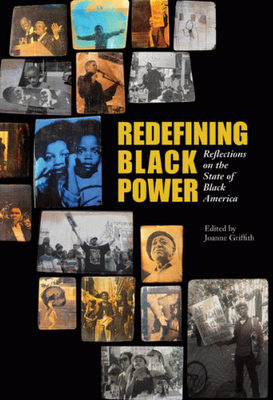
RedefiningBlack Power and Re-Thinking Black Male Achievement on the February 20thLeft of BlackHost and Duke University Professor Mark Anthony Neal is joined via Skype© by journalist Joanne Griffith, editor of the new book Redefining BlackPower: Reflections on the State of Black America (City Lights). Griffith discusses the observations of several of the book's contributorsincluding historian Vincent Harding,Professor Michele Alexander and MOVEmember Ramona Afrika, who cites FredHampton Jr.'s recent quote that "Barack Obama is the new crack." Griffithalso shares about the interview she had with Rev. Jeremiah Wright that was notincluded in the book, and points out the unfair images of Blacks in the media.Later, Neal is joined via Skype© by Shaun Harper, Associate Professor ofEducation at the University of Pennsylvania and Director of the Center for theStudy of Race and Equality in Education. Recently, Harper released astudy entitled "Black MaleStudent Success in Higher Education." Harper discusses the importanceof looking at achievement rather than failure, and describes one example of anexceptional Black male role model. Lastly, Harper shares some of theexperiences of Black male students in higher education as they navigate throughracial hardships.
***
Left of Black airs at 1:30 p.m. (EST) on Mondays on the Ustreamchannel: http://www.ustream.tv/channel/left-of-black. Viewers are invited to participate in a Twitterconversation with Neal and featured guests while the show airs using hash tags#LeftofBlack or #dukelive.
Left of Blackis recorded and produced at the JohnHope Franklin Center of International and Interdisciplinary Studies at DukeUniversity.
***
Follow Left of Black onTwitter: @LeftofBlackFollow Mark Anthony Neal onTwitter: @NewBlackManFollow Joanne Griffith onTwitter: @globaljournoFollow Shaun Harper onTwitter: @DrShaunHarper
###
Published on February 19, 2012 20:26
Notes on a Dying Culture #666 (The Whitney Houston Funeral Telecast)
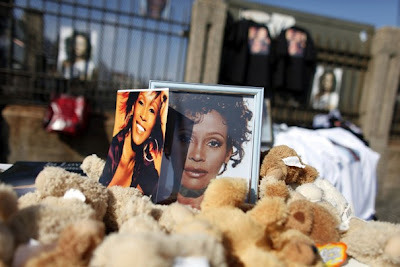
Notes ona Dying Culture #666 (The Whitney Houston Funeral Telecast) by Bob Davis |special to NewBlackMan
As I watched the Whitney Houston funeral services, as broadcast on Americancable TV yesterday, several things struck me.
Here was the root of the mid 20th century Black American culture onfull display for the American public to see. Of course this should come as nosurprise, because this was indeed the culture that had produced WhitneyHouston.
It is also the very same culture that had produced Michael Jackson, JulianBond, Magic Johnson, Jimi Hendrix, Miles Davis, Julius Erving, Jessie Jackson,Richard Pryor, Berry Gordy and many others.
This was the culture that had provided the fuel for the American CivilRights movement. Up until about 1990, this genius of a culture had producednearly 100 percent of that which was considered a contribution of BlackAmericans and probably 75 percent of the American culture, exported to the restof the world. It was a culture built upon simple notions of "sacrifice today, so that future generations can bebetter off."
Then around 1990, a very curious thing happened to this culture. Itwas rejected, lock, stock & barrel by its own children. This rejection is sometimesexpressed by Black Americans themselves when they describe this rejection usingterminology like "Old School" vs. "Hip Hop." Because of theterminology that is used, it is easy to think that somehow this is an inter-generational dispute about music.
Of course, the dispute isn't really about music. The dispute is reallyabout what is the correct path and set of behaviors that Black Americans shouldtake as they march into the future. The people at the heart of this disputefall roughly into two categories
1. Black Americans whoare old enough to have first hand knowledge of the American Civil RightsMovement, who are committed to those inherent set of values.
2. Black Americans whoare too young to have first hand knowledge of the American Civil RightsMovement, who have committed to a set of values that have little in common withthe values inherent in the American Civil Rights Movement.
One of the things that is clear about culture is that it will decline andeventually disappear if younger people do not embrace it and carry it forward.In fact over the past few years, it feels like that Civil Rights culture is beingdestroyed at an accelerated pace, because people seem to be dying at anaccelerated pace. I discuss these two categories of Black Americans in moredetail in an article I wrote for Elmore Magazine back in 2008 which you canread at the following link: http://www.soul-patrol.com/bd_elmore.pdf
I have spent much of the past 15 years doing is documenting thedecline of the mid 20th Century Black American culture, here online and elsewhere,as its creators pass on and the younger group imposes its own culture andexpands it out into the mainstream. Documenting this decline is especiallypainful for me, especially since I am also product of the American Civil Rights Movement and am clearly a person who has broughtinto its values "lock, stock and barrel."
In watching Houston's funeral services the thought occurred to me thatthis could very well be the last time that this great genius of a culture mightbe on display to the mainstream American public for the very last time, at anationally televised funeral for Whitney Houston.
I remember the first time that this culture was on display for the mainstreamAmerican TV audience. It was in 1968, at the funeral of Dr. Martin Luther King.I remember watching it on TV, one of the artists who performed was ArethaFranklin. She was also supposed to perform at Whitney Houston's funeral, but wewere told that she was too ill. However there was another person who was a keyfigure at Dr. King's funeral, who was also a key figure at Whitney Houston'sfuneral.
Reverend Jessie Jackson of course first came to the national spotlightin the aftermath of Dr. King's Assassination. He was the young and fiery "streetpreacher," out of Chicago. At Whitney Houston's funeral Reverend JesseJackson, sat front & center for the entire service. Not only was he nolonger young and fiery, he never uttered a single word. He looked tired andworn out, as I suppose an elder statesman should? However I wondered if helooked that way because he knows that the battle for the hearts, minds andvalues of Black America has been won by the hip hop generation?
I have wondered that very same thing myself.
Will the values of Lil Wayne, XXL Magazine, etc become what Black Americansare known best for in 20 years, once all of the people who have first handknowledge of the American Civil Rights Movement are gone?
Or is there still a possibility that younger people—as illustrated by the "blood on thefloor," killer performances by two artists (R. Kelly & Alicia Keyes)who are too young to have any first hand knowledge of the American Civil RightsMovement—will suddenly wake up and understand that they have a responsibilityto sustain/advance a culture that seems to mostly be on"life-support."
Perhaps this nationally televised funeral can prove to be a watershed eventnot only for Black Americans, but for White Americans as well? For example, Ithought that Kevin Costner's story of his friendship with Whitney Houston wasone of the best cases for the notion of having an integrated society that Ihave heard laid out in many years.
Time will tell.
***
Bob Davis is co-owner/creator (withhis brother Mike) of the award winning Soul-Patrol.com. Follow him on Twitter @Kozmicfunk
Published on February 19, 2012 17:32
February 18, 2012
Remixing the Black Power Mixtape
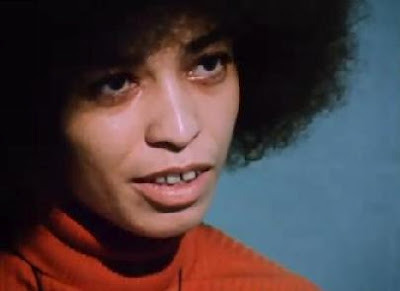
Remixing the Black Power MixtapebyMark Anthony Neal | NewBlackMan
Whenthe Black Power Mixtape premiered atthe Sundance Film Festival a year ago with co-producer Danny Glover in tow, itgenerated a lot of excitement, as much for the promise of bringing the BlackPower era in conversation with the hip-hop aesthetic as it was some confirmationof the distance traveled from outhouses to White Houses. Traveling the indie film route, fewhave had the chance to see the film, which recently debuted on public televisionas part of PBS's long-running series, IndependentLens.
IfBlack Power could be thought of as a brand, there are few brands that have resonatedas powerfully in American culture as it has. More than a brand and perhaps even more than a movement,Black Power has symbolized the possibilities of Black self-determination invirtually every aspect of the Black experience, which explains why the term hasbecome the lingua franca from everyone from 1960s freedom fighters to 21stcentury rap artists reflecting on their personal wealth.
Manyhave sought to distance the Black Power era from the Civil Rights Movement.Historian and Martin Luther King, Jr. speechwriter Vincent Harding reminds inthe book Redefining Black Power:Reflections of the State of Black America (edited by Joanne Griffith), "oneof the most important teachings of many of the black power practitioners wastheir insistence that we stand with the poor, that we identify with the poorand, of course, King, himself, was very clearly saw that. That is why I don't accept the "twocamps" thing, because that is what he said explicitly."
Beyondthe "Sexy" the Black Power has come to represent in the popular imagination—theleather jackets, the berets, the guns—there were men and women who pushed backmightily against the status quo and the State in pursuit of broad-based socialjustice. The Black Power Mixtapevaliantly attempts to pay tribute to those people.
Thefilm, directed by Goran Hugo Olsson, primarily consists of archival footage collectedby Swedish television journalists between 1967 and 1975. The footage is simply extraordinary; ithighlights the incredible access that the journalists had to the movement,whether interviewing Stokely Carmichael in Stockholm, capturing the early morningsong of Black children at the Black Panther Party breakfast program ("guns,pick up the guns, pick up the guns, put the pigs on the run.") or sitting withlegendary Harlem bookstore owner Lewis H. Michaux amidst his book collection,recalling Burgess Meredith in the classic TwilightZone episode "Enough Time." It is Michaux, who often hosted rallies in thefront of his store featuring Malcolm X (el Hajj Malik el-Shabazz), who perhapsoffers the important corrective to our understanding of Black Power arguing,"Black is beautiful, but black isn't power; knowledge is power."
Yetthe value of that footage is continuously undermined by the inability of Olssonto provide enough context to the very images that prove so alluring to anyonewho watches the film. There's atelling scene, for example, early in the film, when members of the Swedishpress are interviewing Stokely Carmichael's mother Mabel in Chicago; it's atouching moment, one where Ms. Carmichael's son is captured in an unguardedmoment, far removed from the fiery figure that mainstream America knew him as.
YetCarmichael, grabs the microphone to conduct the interview with his mother askingher critical questions about race in America, that the film crew was largelyincapable of asking. It's a pointthat Angela Davis, who was on the FBI's "most wanted list," also makes evenmore dramatically in a prison interview, where she chides the interviewer forasking her to repudiate violence, without having a full understanding of theviolence that had been historically directed at Black Americans.
Inthis regard, the film is perfectly suited for the Web 2.0 generation, who havebecome accustomed to being bombarded with unprecedented amounts of data withoutthe benefit of historical or cultural context. In that spirit the film features voice-overs by figures likeErykah Badu, Ahmir "?uestlove" Thompson and Talib Kweli, that understandably aimto connect the film to younger audiences, but often at the expense of hearingmore profound commentary from others such as historian Robin DG Kelley, SoniaSanchez, Melvin Van Peebles, Angela Davis, Kenneth Gamble, and Harry Belafonte,who suggest in passing, that what really led to Martin Luther King, Jr.'smurder's was the leader's "tampering with the playground of the wealthy" whenhe linked the war in Vietnam to America military industrial complex.
Thatsaid, the commentary of Hip-Hop generation artist John Forte about therealities of incarceration is one of the most compelling segments of the film,particularly when framed against the 1971 uprising at Attica State Prison. The Attica uprisings serve as a turningpoint in the Black Power Movement, seeming marking the last strains of hope in theera, as the very forces that brutally silenced the voices at Attica, were doingthe same to organizations like the Black Panther Party. This turning point has the same effecton The Black Power Mixtape, as thefinal segments of the film from 1972-1975, capture some of the aftermath of State repression—when the movement wasno longer sexy and the evening news camera had long left the scene.
Oneof the figures who rose to national prominence in the aftermath of Attica wasNation of Islam Minister Louis Farrakhan, then the head of the Nation's Temple# 7—formerly Malcolm X's (el Hajj Malik el-Shabazz) home-base in Harlem. Minister Farrakhan's youthfulness indisarming, though his rhetoric and style portends the dramatic impact he wouldhave on national politics a decade after the interview featured in the Black Power Mixtape appears. As Robin DG Kelley notes, the interviewis notable because it finds Minister Farrakhan remaking the role of the Nationof Islam—a year before Elijah Muhammad's death—fully jettisoning theconfrontational politics that his late mentor Malcolm X promoted, to embrace apolitics Black Respectability, well before the rise of this generation of Blackmega-preachers.
Olsson'sdecision to linger longer on the aftermath of the Black Power era, redeems thefilm in some ways. As the lateCourtney Callender, one-time director of the Studio Museum in Harlem, laments"falling in love with black things for a short period of time is racist," perhaps anticipating how thoughtlessly,far too many engage Black culture in our own moment.
WhenErykah Badu's implores African-Americans to tell their own story in the film'sfinal segment, The Black Power Mixtapecomes full circle. Somewhere there'sa young, enterprising filmmaker, who will get access to this remarkable archiveand in the spirit of her ancestors, do the necessary work of remixing The Black Power Mixtape.
***
Mark Anthony Neal is the author of five books including theforthcoming Looking for Leroy:(Il)Legible Black Masculinities (New York University Press) and Professorof African & African-American Studies at Duke University. He is founder andmanaging editor of NewBlackMan andhost of the weekly webcast Left of Black . Follow him onTwitter @NewBlackMan.
Published on February 18, 2012 03:50
Mark Anthony Neal's Blog
- Mark Anthony Neal's profile
- 30 followers
Mark Anthony Neal isn't a Goodreads Author
(yet),
but they
do have a blog,
so here are some recent posts imported from
their feed.



